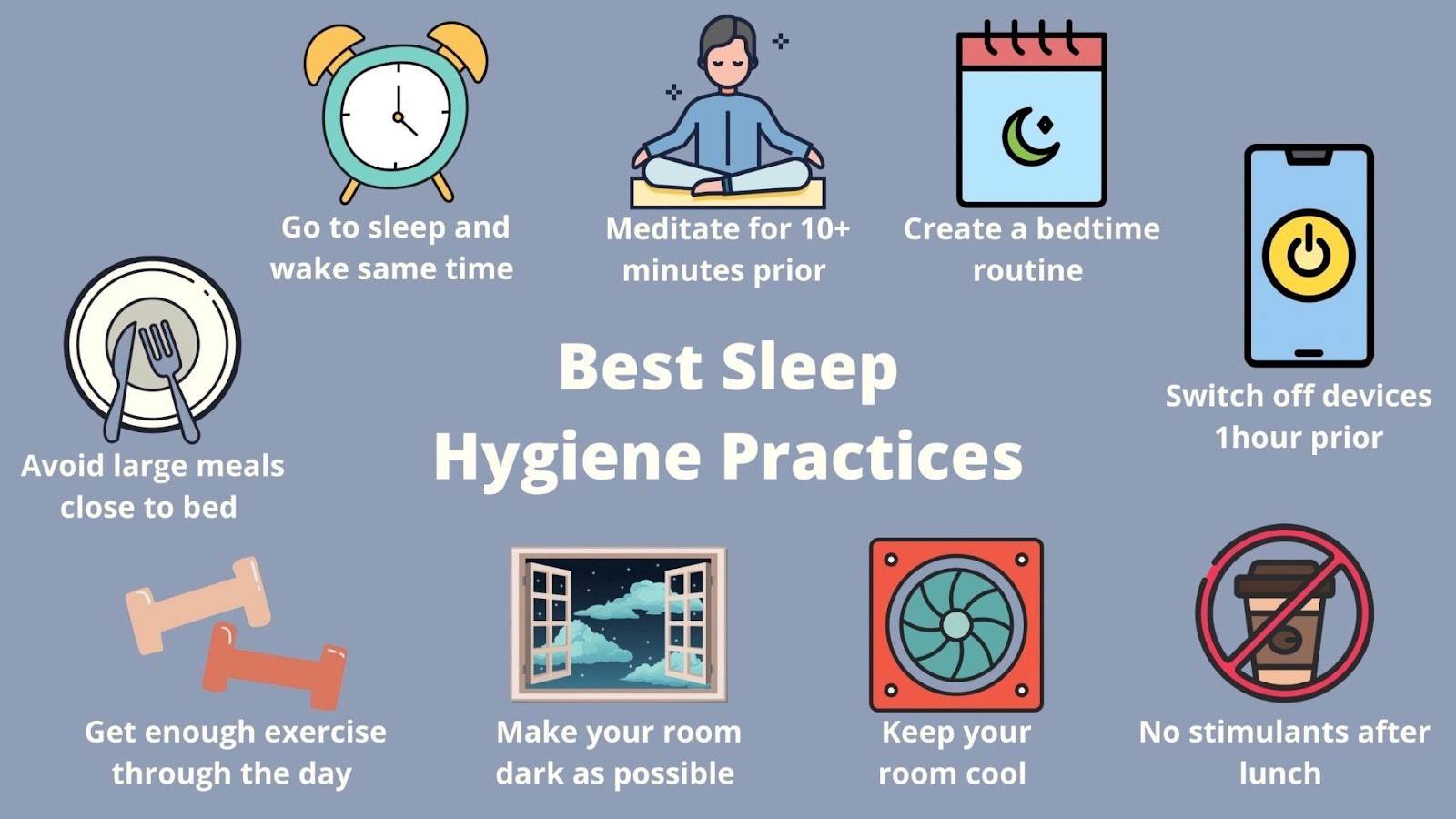What is Insomnia or Sleep disorder
Insomnia or sleep disorder is when the quality of sleep, time, or restorativeness of sleep has changed permanently.
Sleep disorders are now common, and there are other health issues that are linked to not being able to sleep well and relax the brain.
It can impair your ability to concentrate and perform regular activities during the day severely.
Sleep disorders can also aggravate into other health conditions, therefore, sleep hygiene is very important to promote healthy sleep and good health.
According to Healthpally, sleep hygiene refers to certain habits that help to promote healthy sleep.
Sleep hygiene as a way to Improve sleep and well-being
Sleeping disorders can be managed or controlled by certain drugs, but it’s better when you consult your doctor, and a drug is prescribed.
Unless you suffer from a severe sleeping disorder, behavioral therapy measures in the form of sleep hygiene can be helpful to improve sleep.
The following tips can help people with insomnia to develop a healthy sleep rhythm.
No naps during the day
This can result in problems falling asleep and sleeping through the night.
If you don’t want to do without a nap, you should not take it after 3 p.m. and you can set an alarm to wake you after 20 minutes.
In addition, the nap should always take place at the same time.
Sleep-promoting environment
If possible, use the bedroom only for sleeping, not as a study or TV room.
Get yourself a good bed like split king mattress and enjoy maximum comfort on it.
It should also be at the right temperature (not too warm, 16-18 degrees is recommended) and be dark and quiet.
No alcohol 3 hours before going to sleep
Alcohol helps to fall asleep more easily, but it seriously affects the quality of sleep and often leads to problems sleeping through the night.
Therefore, you should not drink alcohol more than once or twice a week in the evening.
About one glass of beer per hour is advised, and be at least 3 hours before going to bed.
No coffee 4-8 hours before bed
The sleep-damaging effects of coffee and other caffeinated beverages like green tea and cola can last 8-14 hours.
The best would be to avoid caffeine for 4 weeks and then consume no more than 3 cup of coffee a day and only before 10 am.
Stop smoking after 7 p.m
Nicotine has a similar negative effect on sleep as caffeine.
In particular, the interaction between nicotine and alcohol has a sleep-disturbing effect.
In the long term, it affects the lung functions, and also the kidney.
Do not eat and/or drink much 3 hours before going to bed
A full stomach or bladder can disrupt sleep. However, a small snack before going to bed (for example, milk with honey, banana) can be helpful.
Foods such as milk, bananas, and chocolate contain L-tryptophan, which plays a role in sleep regulation in the brain.
Food that is difficult to digest, such as raw food and whole-grain products, should be avoided.
No physical exertion after 6 p.m
Like coffee and nicotine, heavy physical exertion stimulates the sympathetic nervous system, which is responsible for activity and stress.
It takes several hours for this activity to subside again.
Regular exercise
Regular physical exercise can improve sleep, especially when people with insomnia have little or no exercise.
Don’t Eat at night
Eating regularly at night causes the body to wake up by itself within a short period because it expects to be fed
No bright light when getting up at night
Bright light acts as a trigger to wake you. Therefore, it should be avoided at bedtime.
Conclusion
The above-mentioned tips should help you to sleep better if you’re not having a good sleep.
If you’re severe sleeping problem, or the tips mentioned here are not working for you, you should consult your doctor immediately for help.
Your doctor may place you on sleep therapy or medications to help manage the illness properly.
Visit December Global Holidays for updated information
